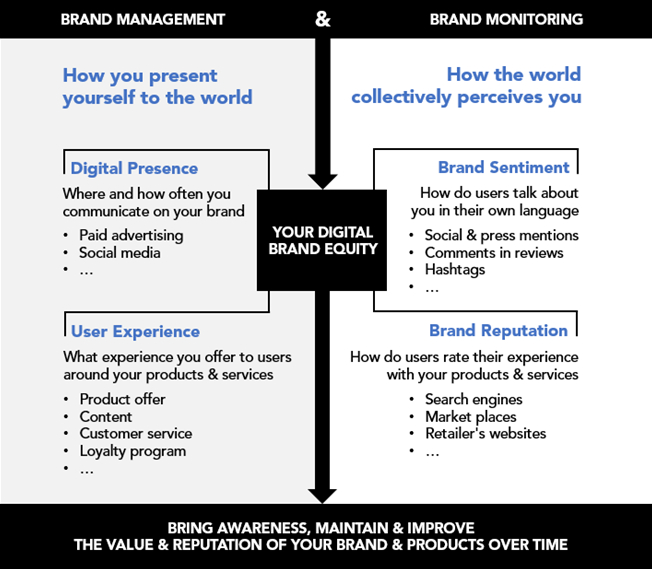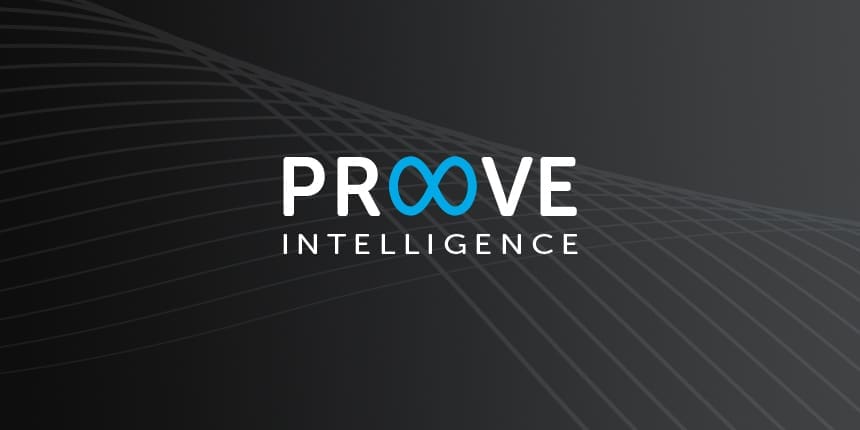
 Brand-equity-how-to-defend-your-rep...
Brand-equity-how-to-defend-your-rep... 
In our hyper-competitive age, digital brand equity is more important than ever. It denotes the value of your brand name and the sway that your company name has with consumers. Well-established companies with positive brand equity will be more likely to retain their customers, can command higher prices for their products and services, and will have in general more success with business expansion.
With tough economic times on the horizon, defending your brand is more important than ever. Here’s how to go about it the right way.
Your brand equity is crucial for growth
Today, brand equity is built not only through marketing and advertising efforts, but also through positive customer experiences. To retain your customers long-term, you must prioritize them, consistently delivering frictionless experiences that cater their needs and preferences. But keeping your customers satisfied is more challenging than ever, and your brand’s health is fragile. We know, for example, that customer reviews and comments, which can fluctuate quickly, are incredibly influential on customers who will be triggered into reconsidering their brand choice by negative comments or reviews.
This is why it is essential for you to keep a watchful eye on the public perception of your brand and to leverage it to improve your offer and your positioning according to the moods of the time.

At DAC, we cover the whole chain of brand management, but we will more specifically focus here on the way we approach brand monitoring. This one is subdivided in two parts intrinsically linked but at the same time quite distinct: Brand sentiment analysis and online reputation management.
Understand how people feel about your brand
A sentiment analysis looks at the specific language used in comments about your brand and can tell you if people are speaking about your brand with a positive, negative, or neutral sentiment.
This is a great way to read between the lines and observe, on a large scale, how people are reacting to the launch of new products, to your campaigns, or your brand in general. Monitoring tools like Sprout Social or Meltwater let you access a detailed sentiment analysis.
This understanding of your brand sentiment is key in the strategy you will put in place to acquire more reviews, and especially better ratings and comments.

Manage your reputation
It has never been easier to post negative comments online anonymously, and therefore it has become absolutely necessary to adopt measures to protect your business. Monitoring your brand helps you stay on top of your reputation and handle issues before they get out of control. Listening to reviews and feedback online and having a process for responding and handling them can increase audiences’ trust in your brand and show that you actually care about what customers are saying.

Monitor the right elements
Trying to track everything everywhere is illusory. It is better to have an intentional approach about what you’re monitoring and the channels you choose to keep an eye on. This prevents you from collecting an overwhelming amount of data that’s difficult to draw conclusions from, and helps you get more clarity out of the results you find.
Some of the main channels to monitor are:
- Specialized online media
- Relevant social media platforms
- Online forums such as Reddit and Quora
- Online review sites such as Tripadvisor, Trustpilot, and Yelp
- Google (of course!)
Use the best martech environment
To ensure that we provide the best solution in terms of monitoring, review volume, engagement rate, review quality, response rate, or local reputation, we set up specific martech systems for each client, thus answering each problem in a personalized way.

Track your metrics over time alongside the information you gather through brand monitoring to see how everything from industry news to changes in your content strategy influences your audience growth and engagement.

Brand monitoring can also help you understand the impact of specific tactics you’ve incorporated in your wider strategy, such as influencer partnerships and campaigns. If you’ve created hashtags for those efforts, or tagged your posts in Sprout, you can bucket and track these posts to understand which campaigns and response efforts succeeded, and which ones failed to connect with your audience.
Bring value to your brand
When you know where people are talking about your brand, it is so much easier to respond. Publicly responding to reviews or comments shows your audience that you are actively listening to what they are saying.
It also shows that you are readily available to assist customers. When you miss the chance to respond to questions or criticism online, it might appear that your brand is unavailable or not listening to feedback. To meet this challenge, we have established a process based entirely on monitoring, which both increases the number of reviews and improves their quality.
With one of our clients, a major global electronic manufacturer, we tripled the number of reviews within one month and increased the average rating from 2.7 to 4.2.

In short, keep your eyes open!
Your business’s health and longevity requires you to keep a watchful eye on the public perception of your brand. There are many ways to approach it depending on your brand, your goals, your budget, and your audience. The key is to be surrounded by a team that leads your brand where it wants to go—so let’s talk!

